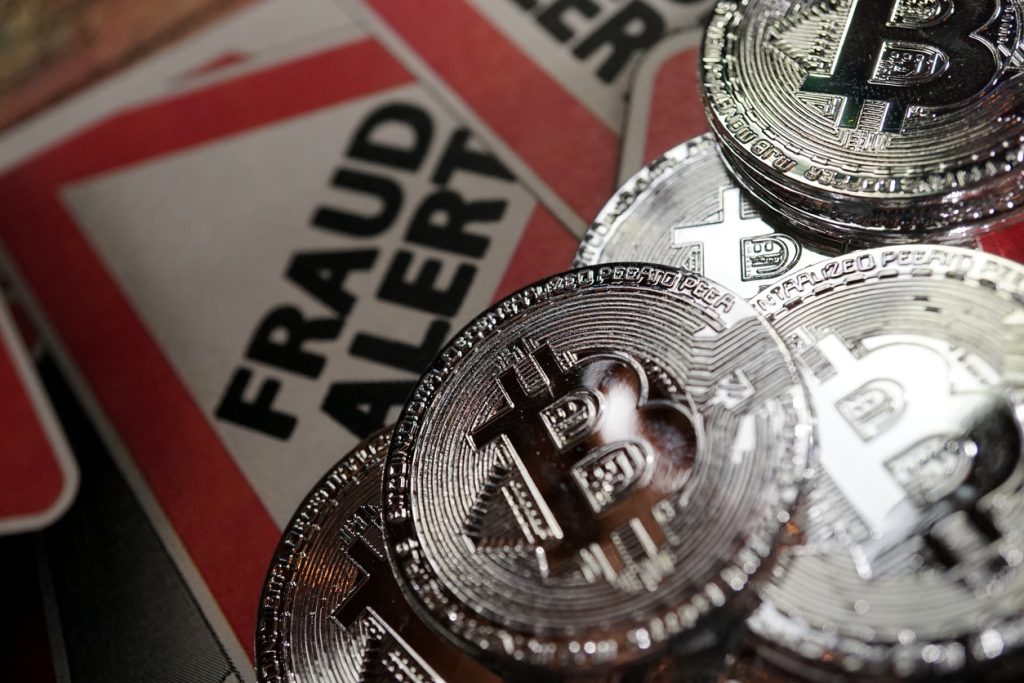Cryptocurrencies, 10 rules to avoid becoming a victim of scams

In the range of Mistake that shaped the world of Exchange of cryptocurrencies in the last few months The Rock Trading is chronologically the latest. The news has caused more uproar in the beautiful country because it is the protagonist in this case it is the first and most important cryptocurrency exchange in Italywhich hasn’t been operational for a few days, to the desperation of 34,000 investors, e.g whose offices were searched by GdF Milan.
However, hundreds of thousands of users around the world lost their savings in this months-long collapse saga after investing them in companies that were still poorly regulated and lacking in transparency. It certainly is It is necessary to distinguish between outright fraud, which burned over $14 billion in 2021 alone, and stock market failures due to mismanagement. Definitely the world of cryptocurrencies attracts more and more people, often low-skilled but high-risk-takers, drawn to the promise earn quickly and easily.
And this is exactly what scammers aim to lure their victims to. The mechanisms were always the same, however With cryptocurrencies, fraud, once triggered, has a guarantee of success as there is no legal protection. Unlike, for example, credit card transactions a cryptocurrency transaction is irreversible and practically anonymous, No addresses or other useful information are given, precisely due to the decentralized nature of the blockchain that underlies digital currencies. Practical, Once you send your cryptocurrency to someone, the chance of getting it back against their will is virtually nil, even with law enforcement involved.
Therefore, the only way to avoid losing your money is to be careful and learn to spot a scam. here you are 10 practical tips to avoid falling into the trap proposed by Crypt & Coa division of the Allcore SpA group that offers legal and tax advice in the crypto space.
How to spot a crypto scam (scam) before falling into the trap
- The promise of high returns and financial independence
Scammers know that in order to get a person to send money (even in the form of cryptocurrencies), they need to be able to silence the logical part of their brain and awaken the emotional part. For this reason, in case of a scam, the messages used are presented with unclear dates but are very urgent, for example “Guaranteed 3 times your investment!” or “Achieve financial independence!”.
- Approximate websites
Because fraudulent websites only need to exist for a few weeks, days, or even just a few hours, scammers typically don’t hire a team of designers to create them. They are almost always full of typos, broken links and false statements from investors who may even be known in the community.
- A confusing or non-existent white paper
All reputable cryptocurrencies come with a white paper written by the founders explaining their purpose and how they work. In the case of a scam, this document does not exist or, if it does, it is vague and confusing. If this is the case, you better not invest (this applies to any investment, not just cryptocurrencies).
- No information about the company team
Another key difference between scammers and genuine cryptocurrency founders is that the former never reveal themselves. If it’s not clear who is behind the platform you’re looking to invest in, that’s not a good sign. If you can’t find clear information about the founders on LinkedIn or industry sites, that’s also a red flag. And even if they do appear, it’s always a good habit to google their names and check if they’ve been involved in scams before.
- Request to transmit private keys
The private key is the cryptographic equivalent of your username and your bank account passcode. A legitimate founder, broker or exchange will never ask for the user’s private key. When someone does that, it’s good to let it go.
- Free Cryptocurrency Giveaways
Any free cryptocurrency proposal should be viewed with the utmost skepticism. To send someone cryptocurrencies, you just need to know their public key. If someone asks for something else, such as B. for personal details, banking information, private key or worse, after sending a small amount of cryptocurrency to “verify your account”, do not trust him, especially if the proposed gift is in Bitcoin or Ethereum.
- Website Hosting and Verification Provider
Sometimes scammers use fake company websites with domains that look very similar to the real ones. Before relying on an exchange, it is good to check via Google that the name is correct and is spelled accurately in the URL. If the site is for example, it’s useful to search Coinbase and review the results.
It’s also a good idea to look up the domain name via Whois. In fact, this page indicates the country of registration, which must match the one publicly declared by the exchange. If it is different, it could be a fake website. Additionally, when the websites are fake, the images are often sourced from around the web, and it’s easy to find out with Google’s reverse search. Finally, it is advisable to check the existence of the company name in the company register of the country of registration (the lists are public and can be consulted online almost anywhere in the world).
- Unclear terms of agreement with exchange
Even if a website turns out to be a genuine crypto trading platform, it is advisable to make sure you fully understand all the details and terms before investing. If the company doesn’t take responsibility for cryptocurrency theft in the agreement, you’d better think twice.
- Don’t trust famous influencers (especially if they write privately)
If you suddenly receive a direct message from Elon Musk, even if you are one of his most active fans on social media, it is better to do some checks for the joy. The first step is to verify that the username is spelled correctly (e.g. @ElonMask or @EllonMusk) and that there is a blue check mark. Always be skeptical about calls for donations for charities via links or bank transfers.
- Clickbait emails and ads
Emails and ads with overly catchy headlines are designed to get people to act on impulse, and if an ad, email, or Telegram message sounds too good to be true, it probably is. If the message is from someone you know, it’s best to check with the person to make sure their profile hasn’t been hacked. If you have clicked on a link or an advertisement, it is better not to leave any personal data, even if asked, and leave the site as soon as possible. For example, if the offer of a “huge investment opportunity” came through a dating site like Tinder, it is certainly a scam. There are valid reasons why LinkedIn isn’t used to meet a soulmate and venture capital funds aren’t talking about pre-seed investing on Tinder. It’s more likely phishing, so you have to block the profile immediately. In general, you should always pay attention to social media shillingi.e. users who advertise a certain coin with false profit updates for a fee, although they have never invested.
Cryptocurrencies: What to do if you fall victim to a scam and don’t trigger phase 2
Despite all caution, it is possible to fall victim to a scam. Fraud is becoming more and more precisely orchestrated and anyone can be involved, even the most vigilant. The risk in these cases is falling into the defined “Two-Step Fraud”: A user has been trading on a particular platform and is encountering a number of growing difficulties while trying to withdraw, e.g. B. requesting a very large number of transactions or making further payments for non-existent tax charges.
At this point he often snaps Stage 2: The victim is contacted by a self-proclaimed international investigative organization with an often high-sounding and credible name that suggests the possibility of such Get your money back. In order to get the money back, the victim agrees to pay additional, sometimes large, sums of money, even tens of thousands of euros without ever being able to come to grips with the situation.
If you’ve fallen into this trap, it’s appropriate Contact the police immediately, especially the postal police, but knowing that the possibility of getting your money back is pretty much nil. However, if the site were true, this is the arbitrator for financial disputesAFC extensionis located consob.





